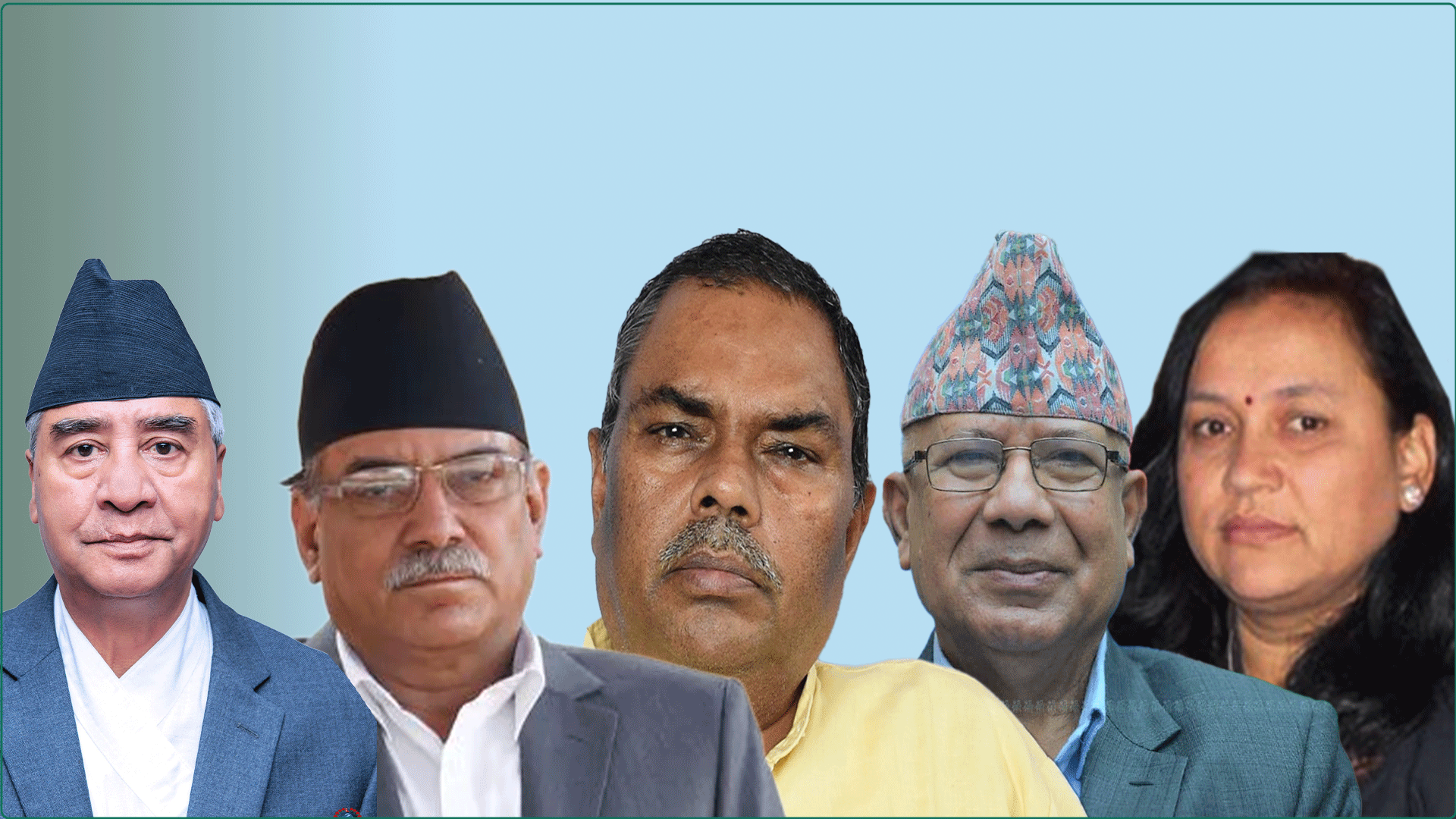Nepali Congress (NC) has demanded candidacy in 100 House of Representatives (HoR) seats during the meeting of ruling coalition to discuss sharing of seats in the upcoming elections.
Rastriya Janamorcha leader Himal Puri talking with reporters after the meeting at Baluwatar Thursday told that NC sought candidacy in 100 of 165 seats to be elected through the first-past-the-post electoral system. CPN (Maoist Center) similarly has staked claims for 60 seats, CPN (Unified Socialist) 40, Janata Samajwadi Party (JSP) 32 and Rastriya Janamorcha two, according to Puri.
He stated that these are just proposals by the respective parties and the leaders will hold further discussion on the issue.
The task force has failed to reach conclusion with NC General Secretary Gagan Thapa, who is also member in the task force that includes three from NC and two each from other four parties in the ruling coalition, proposing that NC should get to field candidates in 100 out of 165 House of Representatives (HoR) seats pointing that the grand old party will not be able to manage disaffection in the rank and file and many may file rebel candidacy against the common coalition candidate as in the recent local election if NC were not to field candidates even in 100 constituencies. Thapa has been arguing that UML candidates will eventually win in those seats where candidates of other coalition partners are fielded if NC leaders were to field rebel candidacy or unhappy NC voters do not turn up to vote for candidates of other parties.
CPN (Maoist Center) General Secretary Dev Gurung, on the other hand, has proposed that the coalition partners should retain the seats they won five years ago and share the seats won by CPN-UML proportionally on the basis of performance in the recent local election and the last federal and provincial elections.
Maoist Center had won 36 seats after allying with UML with promise of post-election unification while NC had won just 23 seats fighting against the strong left alliance. NC may get to field candidates in only around 80 constituencies if that model were adopted in sharing of seats.
Setopati recently did a story on what would be legitimate claim of the coalition partners in sharing of House of Representatives (HoR) seats on the basis of the votes received in the recent local election and the last general election.
NC received 34.2 percent of the total votes, Maoist Center 13 percent, Janata Samajwadi Party (JSP) 5, Unified Socialist 3.66 and Rastriya Janamorcha 0.35 percent if we take the votes received by their respective candidates for ward chair across the country in the recent local election.
The votes secured by the coalition partners in this way was 56.2 percent of the total votes cast in the local election. If we take this 56.2 percent as 100 percent, NC received 60.8 percent of the total votes secured by the ruling coalition, Maoist Center 23.1 percent, JSP 8.9, Unified Socialist 6.5 and Rastriya Janamorcha 0.62 percent.
NC, in this way, can stake claim for candidacy in 100 of the total 165 HoR constituencies. Similarly, Maoist Center would get candidates in 38 seats, JSP 15, Unified Socialist 11 and Rastriya Janamorcha one.
We then looked at the votes secured by the parties in the last general election in 2017 in the proportional representation (PR) electoral system. Unified Socialist was part of UML then.
There has been very little change in the votes secured by the parties in the coalition in the general election in 2017 and the recent local election. NC’s vote increased by around one percentage point in the recent local election while that of Maoist Center has fallen by less than a percentage point. JSP’s has increased by a smaller proportion than that while Rastriya Janamorcha has also fallen negligibly. It would, therefore, be logical to assume that Unified Socialist would have received similar proportion of the votes it received in the recent local election had it contested in the general election in 2017.
NC received 33.2 percent of the total votes, Maoist Center 13.77 percent, the then Federal Socialist Forum Nepal (largely JSP now) 4.93, and Rastriya Janamorcha 0.70 percent in 2017. The votes secured by the coalition partners in this way was 56.3 percent of the total votes cast in the federal election in 2017 if we assume that Unified Socialist would have received 3.66 percent like it did in the recent local election.
If we take this 56.3 percent as 100 percent, NC received 59 percent of the total votes secured by the ruling coalition, Maoist Center 24.5 percent, JSP 8.8, Unified Socialist 6.5 and Rastriya Janamorcha 1.2 percent.
NC, in this way, can stake claim for candidacy in 97 of the total 165 HoR constituencies. Similarly, Maoist Center would get candidates in 40 seats, JSP 15, Unified Socialist 11 and Rastriya Janamorcha two.
There is not much difference in the claims for HoR seats on the basis of votes received in the general election in 2017 and the recent local election.
Our analysis showed that the parties in this way will agree on sharing of seats around the votes they received in the last two elections. NC will be under pressure to give away a few seats as it will get to lead the post-election government if the coalition gets majority.

